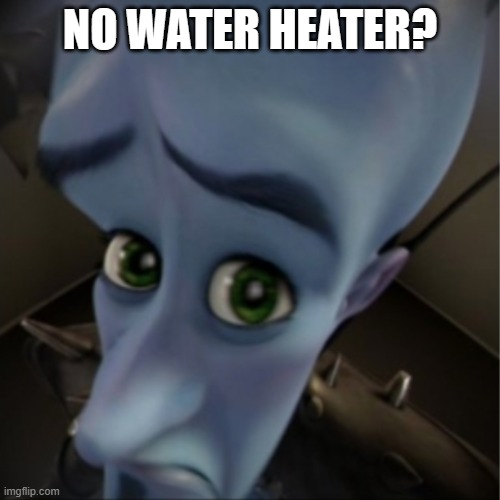Understanding Heater Breakdowns: Causes, Solutions, And Maintenance Tips
When winter hits and the cold weather sets in, having a functioning heater is essential for comfort and safety in your home. However, there may be times when your heater breaks down unexpectedly, leaving you in a chilly situation. In this comprehensive guide, we will explore the common causes of heater breakdowns, how to troubleshoot these issues, and proactive maintenance tips to ensure your heater runs smoothly throughout the colder months.
Understanding the reasons behind a heater breakdown can save you time, money, and discomfort. Whether you have a furnace, heat pump, or electric heater, knowing when to call in a professional and when to tackle the problem yourself is crucial. This article will provide you with the expertise you need to handle any heating issue that may arise in your home.
In addition to troubleshooting and repair tips, we will also cover the importance of regular maintenance and how to prepare your heater for the winter months. By following these guidelines, you can ensure that your heater remains in peak condition and provides reliable warmth for you and your family.
Table of Contents
- Common Causes of Heater Breakdowns
- Troubleshooting Your Heater
- Solutions for Common Heater Problems
- Importance of Regular Maintenance
- Preparing Your Heater for Winter
- When to Call a Professional
- Understanding Repair Costs
- Conclusion and Call to Action
Common Causes of Heater Breakdowns
Heater breakdowns can occur due to a variety of reasons. Understanding these causes can help you identify issues early and prevent total failure. Here are some common causes:
- Dirty Filters: Clogged filters restrict airflow, causing the heater to work harder and potentially overheat.
- Thermostat Issues: A malfunctioning thermostat can lead to incorrect temperature readings, preventing the heater from functioning properly.
- Electrical Problems: Faulty wiring or blown fuses can disrupt the heater's operation.
- Pilot Light Problems: For gas heaters, a blown-out pilot light can stop the heating process.
- Mechanical Failures: Wear and tear on components like motors, belts, and fans can lead to breakdowns.
Troubleshooting Your Heater
Before calling a professional, you can perform some basic troubleshooting to identify the issue with your heater. Here are steps you can take:
1. Check the Thermostat
Ensure the thermostat is set to the desired temperature and is functioning correctly. If your heater is not responding, try replacing the batteries in digital thermostats.
2. Inspect the Filter
Check the air filter and replace it if it's dirty or clogged. A clean filter improves airflow and efficiency.
3. Look for Blockages
Ensure that vents and registers are free of obstructions. Furniture, curtains, and other items should be moved away from heating vents to allow for proper airflow.
4. Examine the Circuit Breaker
Check the circuit breaker for any tripped switches. Resetting the breaker may restore power to the heater.
Solutions for Common Heater Problems
If basic troubleshooting does not resolve the issue, consider these solutions:
1. Replace Filters Regularly
Regularly changing air filters can prevent overheating and increase the efficiency of your heating system.
2. Reset the Pilot Light
For gas heaters, if the pilot light is out, follow the manufacturer's instructions to safely relight it.
3. Repair or Replace Faulty Components
If you identify specific mechanical failures, such as a broken fan motor, consult a professional for repair or replacement.
4. Upgrade to a Programmable Thermostat
A programmable thermostat can optimize heating schedules and improve energy efficiency.
Importance of Regular Maintenance
Proactive maintenance is critical in preventing heater breakdowns. Regular inspections can help identify issues before they become serious problems. Here are tips for maintaining your heater:
- Schedule annual professional inspections.
- Clean or replace filters every 1-3 months, depending on usage.
- Inspect ducts and vents for leaks or blockages.
- Test the thermostat's accuracy regularly.
Preparing Your Heater for Winter
As winter approaches, it's essential to prepare your heating system for the colder months. Here are steps to take:
- Ensure all components are clean and functioning properly.
- Check insulation around ducts to prevent heat loss.
- Consider a professional tune-up to ensure optimal performance.
When to Call a Professional
While some issues can be resolved through troubleshooting and maintenance, others require the expertise of a professional. Consider calling a technician when:
- The heater makes unusual noises.
- There are signs of gas leaks or burning smells.
- Your troubleshooting efforts do not resolve the issue.
Understanding Repair Costs
Repair costs can vary widely based on the issue and your location. Here are some general estimates:
- Filter replacement: $10 - $30
- Thermostat replacement: $100 - $300
- Pilot light repair: $100 - $150
- Major repairs (motors, compressors): $300 - $1,000+
Conclusion and Call to Action
Understanding heater breakdowns and how to address them is essential for maintaining a comfortable home during winter. By following the troubleshooting tips and regular maintenance guidelines outlined in this article, you can minimize the risk of unexpected heater failures.
If you found this article helpful, please leave a comment below, share it with others who might benefit, or explore more articles on our site for additional home maintenance tips.
Stay warm and take care of your heating system to ensure a cozy winter!
Camilla Araujo: The Rising Star Of Brazilian Entertainment
Camila Arajuro: Rising Star In The World Of Entertainment
Camilla Araujo: The Rise Of An OnlyFans Star

5 Signs That Your Heater Is Broken FAQ Ambient Edge

Water heater broke r/HomeImprovement

me to me (our water heater broke) Imgflip